This afternoon I asked a friend a simple question: if you
could use television to educate young women about feminism, what would you show
them?
And we were stumped. The simple answer seems to be that you
would show them a show with strong female characters, badasses, and explain
that women can be cool and strong. Or maybe something like Game of Thrones, if you want to show how women can use any
situation to its advantage.
But actually, I think the answer is a lot harder and a lot
simpler than that. Show them Mad Men.
In explaining feminism to anyone who doesn’t instinctively
get it, there’s always an urge to indulge. To show the cool, the strong female
characters, and forget about the bad, pretty much everything else. We want to
show what women can be, and in so doing, we lose sight of showing people what
women are and what we were.
That’s why it came down to Mad Men.
Mad Men isn’t a
preachy show, it isn’t a badass show, and it’s not even a particularly female
heavy show. What it is, though, is honest. The secretaries are treated like
dirt, but sometimes they aren’t. Women are objectified, but a few use it to
their advantage. Wives are infantilized, mistresses are insulted. It’s a hard
show to love, but it’s an important show to have.
There are three main female characters on Mad Men: Betty, Joan, and Peggy. Each of
them highlight a different aspect of the work-life dynamic of mid-century
America, and each of them has something interesting to say about the world today.
If you’re going to teach someone about feminism, this is where you start.
Betty is the ugly in all of this. She’s a housewife, but
she’s treated like a child. Her attitude is simplistic and selfish, and she
doesn’t know how to deal with the life she’s ended up in. She’s depressed.
She’s annoyed. And she whines a lot. It’s pretty hard to love Betty.
But it is easy to feel sorry for her. Betty is the
emblematic sixties housewife, the woman that The Feminine Mystique was written for. Having given up her exciting
jet-setting career as a model to marry Don, she finds herself bored and unhappy
in the life of pretty much everyone’s dreams. Her husband doesn’t listen to
her, cheats on her, lies to her, and her children think she’s awful and
overbearing. She gossips about her neighbors, drinks too much, and eventually
has to see a psychiatrist because her ennui has actually started to come out
physically.
I’d love to say that Betty represents where we’ve come from
as a gender, but I don’t think that’s true. I think there are lots of Bettys
still out there, miserable and faking it because they don’t know what else to
do. Hard as it is, though, to look at her misery and not instinctively rush to
cover it up, I think we need to face up to our problems. Betty isn’t gone.
Young girls should know that.
Then there’s Joan. Like most people with a heartbeat, I love
Joan. She’s clever and witty and gorgeous and so intimidatingly cool that it’s
hard to stand. Joan is what Betty would never even consider wanting to be. She’s
a self-made woman, who’s risen to the top of her career path, and by the end of
Season 5, even higher than that.
But Joan has a decidedly unfeminist side. Like a lot of
women of her generation, Joan doesn’t just want to succeed in business, she
wants to get married, have kids, and leave it all behind. She’s comfortable in
her body, certainly, but she doesn’t seem to view it as her body, rather a vessel that she can use to get what she wants.
Joan is the queen of using sex appeal to get ahead, and while it’s worked very
well for her, it’s also demeaned her to herself. It’s hard.
And when she does finally get married and have a baby, it’s
with a man she doesn’t really love. She misses work. She hates her husband, and
eventually, she leaves him. She goes back to the office and she finds she
wishes she hadn’t left. Joan is the woman who wanted the traditional path, the
Betty path, but didn’t get it. And ultimately she finds that she can’t mind
that.
Finally, we have Peggy. Peggy is the most obviously feminist
character on the show, starting as a secretary and by the end of the first
season becoming the first woman copywriter at the company. It’s cool, watching
her rise. She doesn’t use sex to get what she wants, but she is relatively
sexually liberated. She makes mistakes, but she pushes on. Peggy wants a
career, and no marriage is going to stand in her way.
It’s not that Peggy is a man-hater or anything like that.
She’s a good Catholic girl who occasionally screws up, but she’s also a woman
who understands what she wants. She wants someone she can be a partner to.
Unfortunately this means that she’s stuck with a lot of duds for a while, but
Peggy doesn’t settle. She waits.
Of course, Peggy does some less than feminist things too.
She has a lot of difficulty seeing other women’s choices as anywhere near as
valid as hers. Even with Joan, Peggy can be harsh and judgmental about Joan’s
sex life and ambitions. But Peggy has goals. She’s a career woman. And that’s
something we should show too.
I’d like to give a clear answer here, and say that there is
a definably feminist character on this show, while the others are obviously
not, and all you have to do to understand feminism is watch these three
episodes. But that is patently false. Feminism isn’t just about wanting a
career, or even wanting equal rights. It’s about understanding where we’ve come
from, and knowing where we’re going.
Of course every woman makes her own way, and of course every
woman is going to value different things in life. Betty values her social and
familial life (terrible though she is at showing it). Joan values her career,
but she also put a lot of stock in her romantic life. Peggy is all about her
job, to the detriment of her relationships. To understand feminism, we need to
have feminist characters that show all sides of the issues.
And, personally, I think that we need to stop assuming that
just because people aren’t talking about it, it’s done. Feminism isn’t a thing
that ends. It keeps going. These women from the 1960s resonate because they
show us ourselves. Things have changed, but not enough. That’s why we need
shows like Mad Men.
When they’re done, though, I’m totally showing my students Terminator 2.
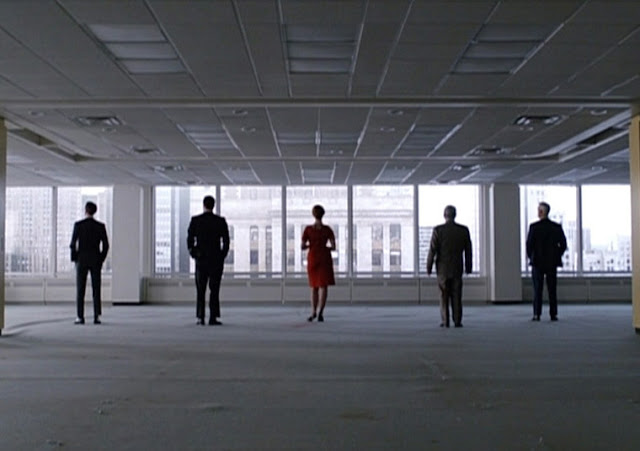 |
| Moments like this are why I watch this show in the first place. |

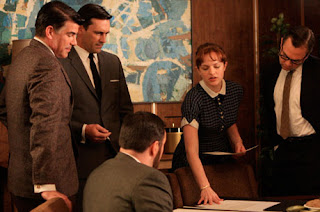
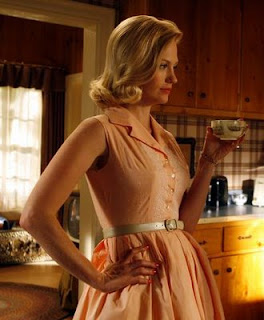
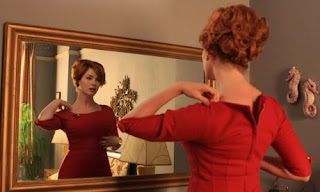

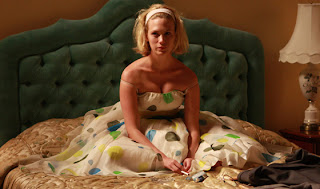
A grasping magnificently composed blog. Really a present for its gathering of people.
ReplyDeleteresumeyard.com